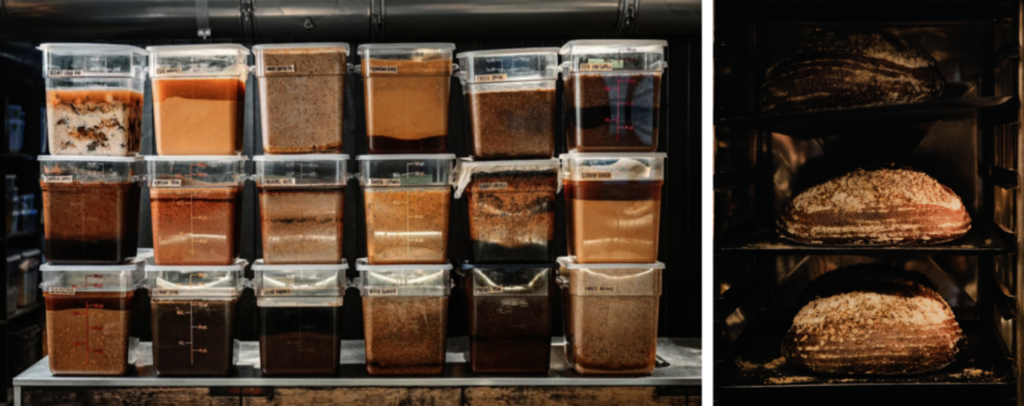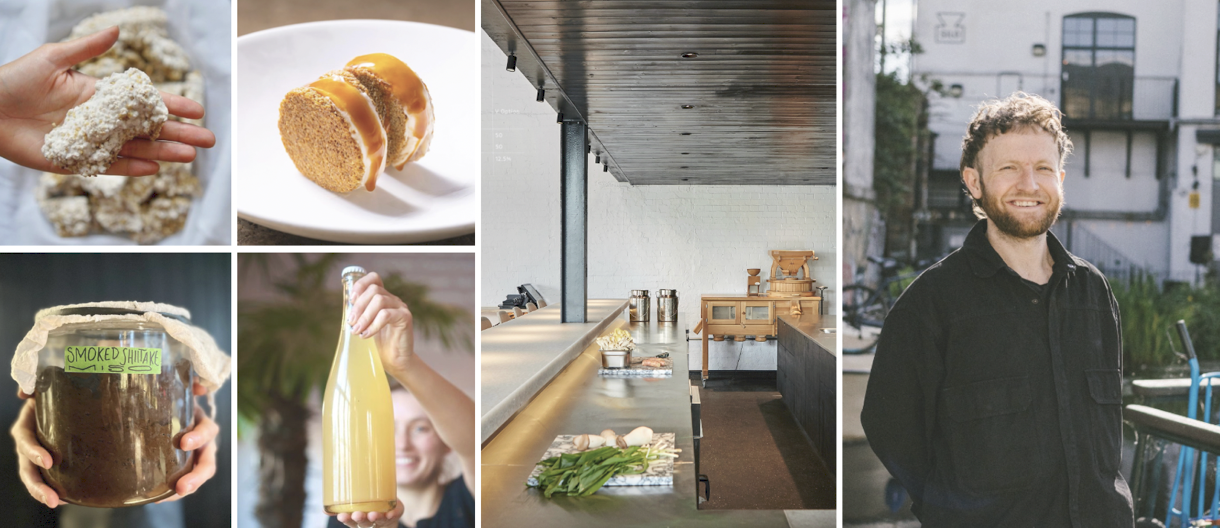Silo, led by chef Douglas McMaster, the world’s first zero-waste restaurant, isn’t just serving exceptional food; it’s meticulously redefining how the hospitality industry can operate with sustainability at its core, achieving a remarkable 20% higher food gross profit than the industry standard in the process.
Founded in 2014, Silo’s ethos is simple yet profound: eliminate waste entirely. This isn’t just a philosophy; it’s ingrained in every process, from ingredient sourcing to the very furnishings of the restaurant, resulting in a dining experience that’s both deeply conscious and utterly delicious, proving that “sustainability isn’t only possible, but that it can exist without compromise,” as McMaster himself puts it.
A Flavour-Forward Approach to Waste
Silo challenges the very notion of “waste” by viewing every ingredient as having its full potential. The team’s ingenuity shines through their flavour-forward approach, ensuring that nothing is discarded but instead transformed into something extraordinary, largely thanks to their groundbreaking in-house fermentation program, which allows them to craft a weekly changing menu dictated by seasonality and availability.
Take, for instance, the ingenious Siloaf ice cream sandwich. This dessert perfectly encapsulates Silo’s closed-loop system, utilising surplus cuts from the restaurant’s bread and butter course. Bread is fermented for two days, developing a rich, Marmite-like umami base. This is then combined with sugars to create a salty-sweet caramel. Buttermilk, a byproduct of Silo’s home-churned butter, is caramelised into a dulce de leche ice cream, all sandwiched between wafers made from remnant bran, a byproduct of the on-site milled flour.
The Magic of Fermentation

At the heart of Silo’s waste reduction efforts lies fermentation. This ancient technique breathes new life into the “uglier” parts of ingredients, transforming them into delicious, flavour-elevating components, resulting in the restaurant’s typical 30% food waste decreasing to an astonishing 3%.
In the rear of the restaurant, Silo boasts an impressive array of house-fermented products: garums, misos, sauerkrauts and shoyu. Koji, an activated fungus, acts as the vital starter for these ferments, while surplus meat, whey, fish bones and offcuts are repurposed into rich garums. A current menu highlight features heritage carrots served with a complex, fruity garum made from chicken wing bones.
The Fermentation Factory
To mark its 10-year anniversary, Silo is expanding its revolutionary vision with the launch of the Fermentation Factory, a groundbreaking new commercial fermentation site, in partnership with Crate Brewery. Headed by Ryan Walker, Silo’s fermentation guru, this project aims to upscale their in-house expertise, transforming challenging ingredients into high-value products for mainstream kitchens and bars.
Set to open its doors later this summer in a former nightclub, the Fermentation Factory will cultivate and distribute fresh koji, a “zero soy sauce” made from waste bread, and a miso product crafted from spent beer grains from Crate Brewery. By providing businesses with these essential tools for closed-loop processes, Silo seeks to make sustainable practices accessible and economically viable on a commercial scale, reinforcing why their food gross profit significantly outpaces industry norms.
Through initiatives like the Fermentation Factory, Silo continues to champion a future where culinary excellence and environmental responsibility go hand-in-hand, paving the way for a truly zero-waste world.
Closing the Loop, Beyond the Plate
Every element of the restaurant’s design and operation is a testament to upcycling and mindful consumption. The central bar and dining tables are crafted from recycled plastic packaging, supported by cork and ash wood legs while light shades are ingeniously formed from seaweed and mycelium, a fungus that grows on brewing grains.
When wine bottles are emptied at the table, they embark on a journey to the building’s resident potter, where they are crushed and melted into decorative furnishings, and now, even serveware and cutlery. All flour is milled on-site, oats are steeped to create homemade oat milk and an on-site brewery produces drinks from house ferments, further tightening Silo’s self-contained food system.
Website: https://www.silolondon.com/
Address: Unit 7, Queens Yard, Hackney Wick, London, E9 5EN.
Instagram: @silolondon





















